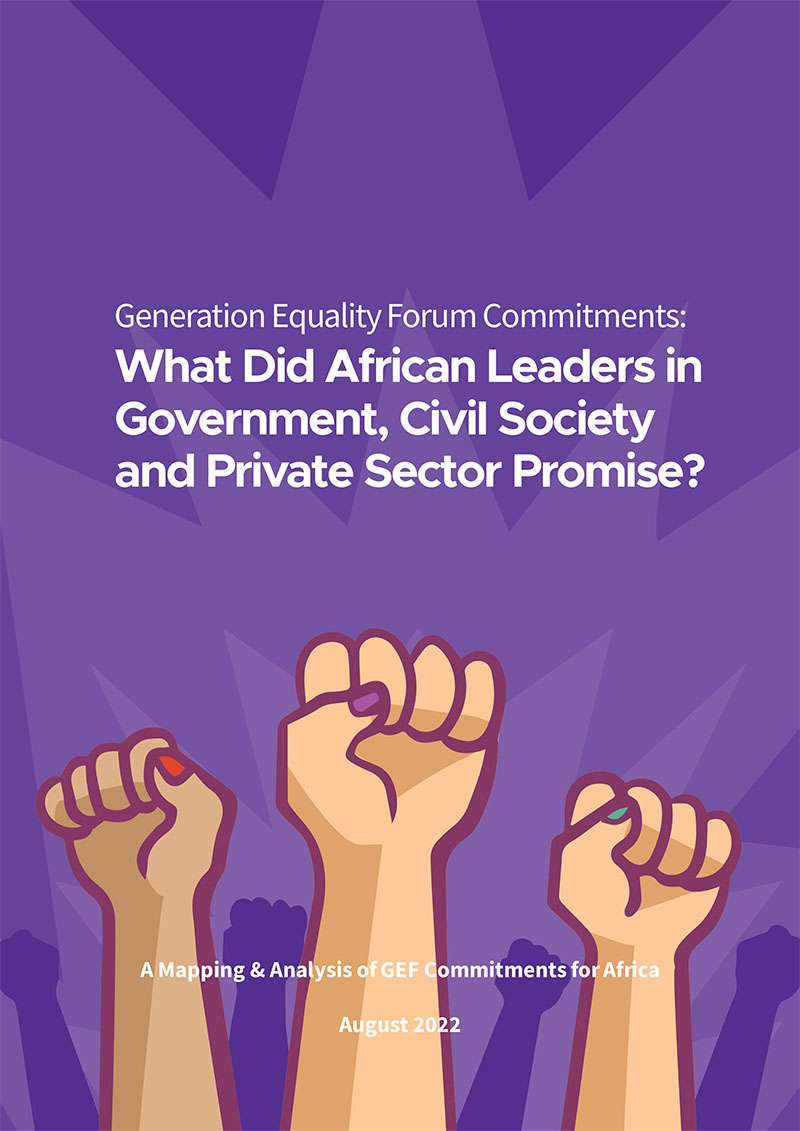
Generation Equality Forum Commitments: What did African Leaders in Government, Civil Society & Private Sector Promise?
This year 2022, marks the 27th anniversary of Beijing Declaration and Platform for Action (BDPfA) unanimously endorsed during the 1995 Fourth World Conference on Women that solidified and set global targets for achieving gender equality and women’s rights. Although the Beijing+25 anniversary was subdued to virtual commemoration due to the outbreak of coronavirus disease (COVID-19), women and girls across Africa were relentless to ensure that the Beijing fire did not die. The COVID-19 pandemic revealed the persistent systemic and structural barriers to achieving a just, equal, sustainable and inclusive world. A consistent clarion call by feminists, activists and gender advocates was the urgent need for a system change and dismantling of entrenched patriarchal and neoliberal development models.
While there has been notable progress especially around enacting legal and policy frameworks across Africa, lack of adequate resourcing to facilitate implementation and potent pushback by growing opposition on the women’s movement continues to derail the Beijing promise and agenda for equality, sustainable development and peace.
This Mapping and Analysis of GEF commitments in Africa, provides a continental overview of the GEF dashboard of commitments made by different African leaders in civil society and women’s rights organizations, government, private sector and young people movements across the six Action Coalitions. This mapping also analyses the processes and co-creation steps taken in the GEF multilateralism that brings together the leadership and participation of the various multi-stakeholders.
We believe that this mapping and analysis will enable meaningful engagement between and among African leaders in government, civil society, young people movement and private sector in the implementation and tracking of the GEF commitments and more so serve as a tool for:-
• Awareness – to popularise the GEF commitments by different leaders.
• Accountability – to monitor and analyse progress in implementation over the five years (2021 – 2026).
• Agenda setting – to link and complement ongoing processes and commitments like the SDGs, Maputo Protocol, CEDAW and national policies and constitutional frameworks.
• Advocacy – to encourage other leaders to become commitment makers and honour the commitments.






